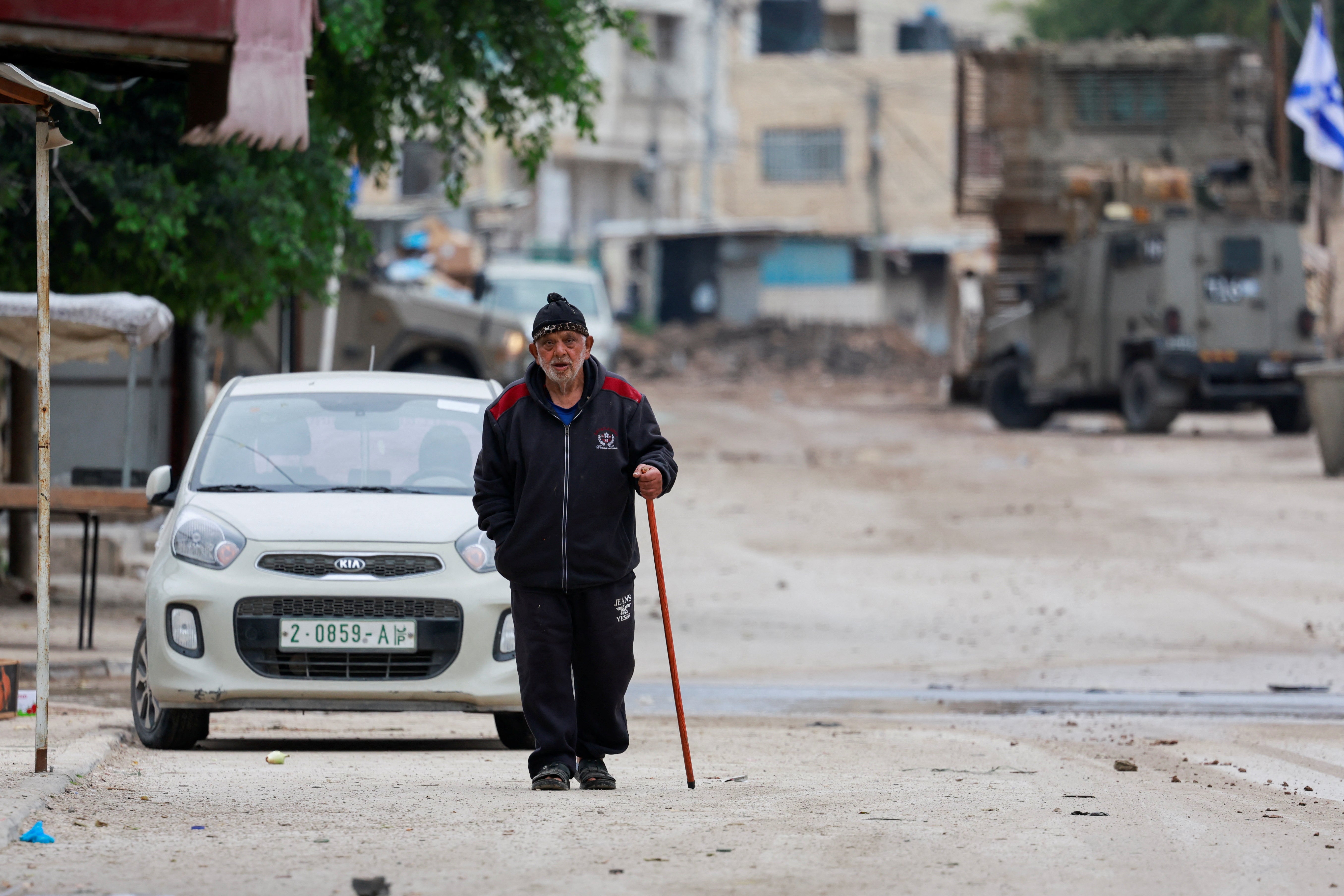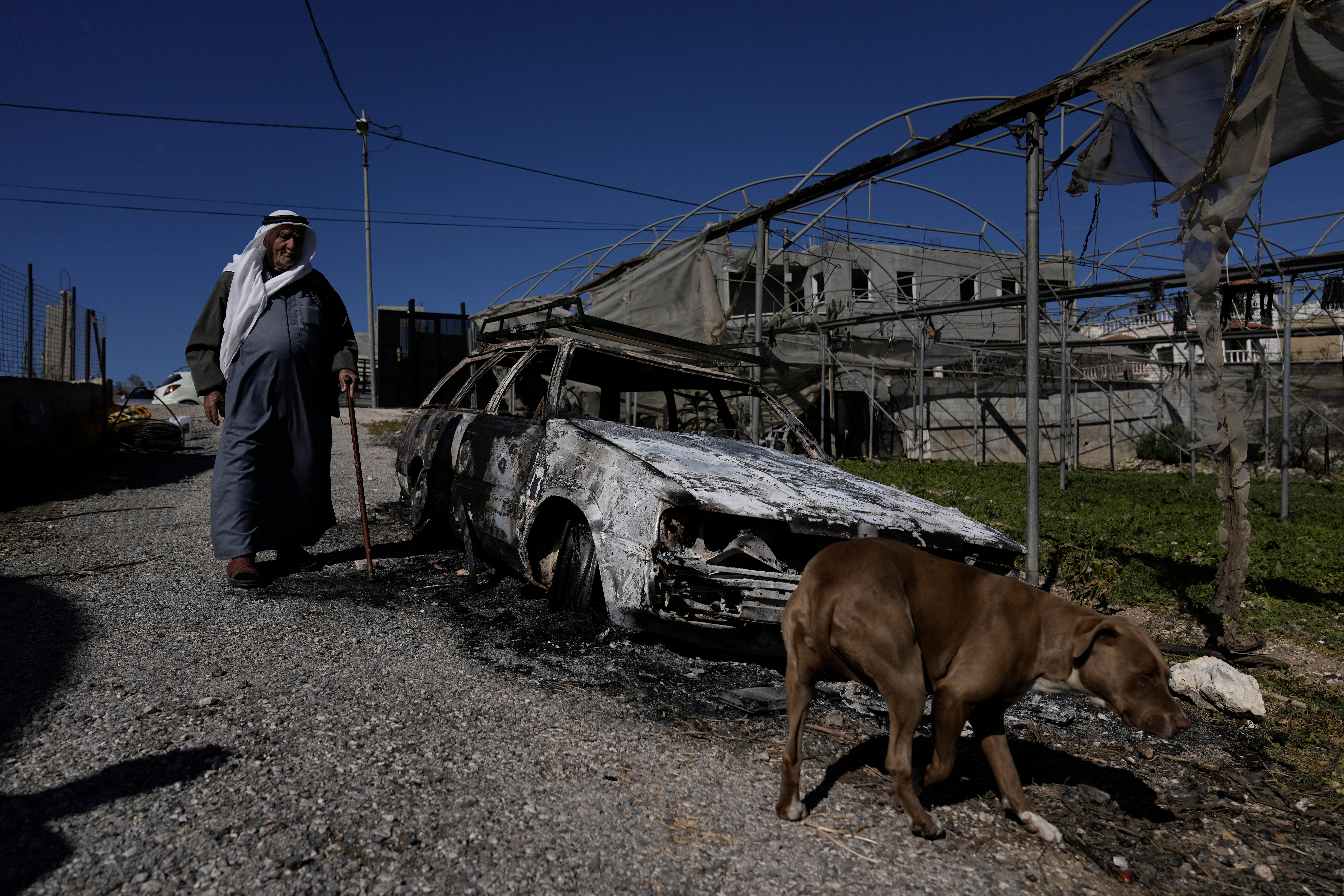At least 10 Palestinians have been killed dozens injured in an Israeli raid in the occupied West Bank, with neighbouring Jordan’s foreign minister warning that the offensive could lead the West Bank to “explode”.
The raid in the northern city of Jenin wounded at least 40 people, Palestinian health officials said, in an operation which Israeli prime minister Benjamin Netanyahu said would be “extensive and significant”.
Palestinian media reported that on Tuesday there were several air strikes as a large number of troops entered the city and its refugee camp, backed by drones, helicopters and armoured bulldozers. On Wednesday, Jenin’s governor said Israeli forces had “bulldozed all the roads leading to Jenin camp, and leading to Jenin government hospital”.
Palestinian media reported that as many as 200 people were trapped inside the government hospital in and videos were shared online showing what appeared to be Israeli military bulldozers building sandbanks around the hospital.
The raid comes days after the start of a ceasefire for the war in Gaza, triggered by an attack by Hamas on 7 October that killed around 1,200 people and saw another 250 taken hostage. Israel’s retaliatory offensive inside Gaza has killed 47,000 Palestinians, according to health ministry officials in the enclave.

The Israeli military said the aim of a large-scale operation is to ensure militant groups “are not rearming a few hundred metres from Israeli communities.”
“We have to learn from 7 October and not let terror groups regroup rearm, and plan terror attacks a few hundred metres from us,” International spokesman LTC Nadav Shoshani said , calling Jenin “one of the main points of terror.”
Asked about recent events in the occupied West Bank, Jordan’s foreign minister, Ayman Safadi said at the World Economic Forum in Davos, that “maintaining the security of the West Bank” is of “top priority”, warning that otherwise it could “destabilise the whole region”.
“I think maintaining the security of the West Bank, making sure the West Bank does not explode is something of top priority and it is dangerous what is happening there,” he added. “And I think the whole world needs to take a deep look at what is happening, and again with the same vigour that we’re looking at the ceasefire, we should also be working to prevent an explosion on the West Bank.”
The Israeli military spokesman Mr Shoshani declined to give a time frame for the length of the operation but said they would likely be operating in different areas of the West Bank, suggesting that the operation could expand.
An unnamed security source told Israel’s Channel 14 Wednesday that the Israeli military operation in the northern occupied West Bank “could take months.”
“What we did in Gaza, we will do to them as well; we will leave them in ruins,” the source added.
Mr Shoshani said: “The threat of terrorism, for ordinary civilians, from both organised terrorist networks and lone-wolf attacks, continues to pose a grave and immediate threat to our civilians. Hamas is also trying to incite this terror coming out of [the West Bank] and encouraging those terror cells in [the West Bank] to carry out terror attacks against Israelis. Iran has been repeatedly attempting to smuggle weapons and explosives into [the West Bank].”
Mr Shoshani referenced an 18 January stabbing by a Palestinian from Tulkaram in Tel Aviv, an attack a few weeks ago when militants from Jenin killed three Israelis, including two elderly women near the settlement of Kedumim, and a December attack when an 83-year-old woman was stabbed to death in Herzliya by a Palestinian militant from Tulkaram.

Palestinian media reported that a car containing a Palestinian family had been shot at during the operation in Jenin. The Independent has asked the Israeli military about the alleged incident, but has yet to recieve a response.
Elsewhere in the West Bank, dozens of masked men rampaged through two Palestinian villages in the northern West Bank late Monday, hurling stones and setting cars and property ablaze, according to local Palestinian officials. The Red Crescent emergency service said 12 people were beaten and wounded. The Israeli military said the men threw rocks at soldiers who arrived to disperse them and that an investigation had been launched.
Israeli forces, meanwhile, carried out a raid elsewhere in the West Bank that the military said was in response to the hurling of firebombs at Israeli vehicles. It said several suspects were detained for questioning, and a video circulating online appeared to show dozens being marched through the streets.
Jalal Bashir, the head of Jinsafut’s village council, said three houses, a nursery and a carpentry shop had been attacked. “The settlers were masked and had incendiary materials,” said Bashir. “Their numbers were large and unprecedented.”
Louay Tayem, head of the local council in Al-Funduq, said dozens of men had fired shots, thrown stones, burned cars, and attacked homes and shops, the Associated Press reported.
Charred shells of cars littered the side of the road in Jinsafut on Tuesday, and residents were seen surveying the damage to a burned storage space.
Also speaking in Davos, UN secretary-general Antonio Guterre said that the ceasefire in Gaza had so far been successful in allowing in aid to the enclave, but had a warning over any further future action.
“There is a possibility of Israel feeling emboldened by the military successes to think that this is the moment to do the annexation of the West Bank and to keep Gaza in a kind of a limbo situation,” he said.
“That would be a total violation of international law… and would mean there will never be peace in the Middle East.”



